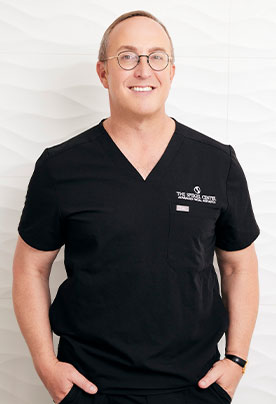The second phase of clinical trials on a promising new drug treatment for unsightly cellulite has just begun, according to a recently published article in Science Daily. Researchers at Stony Brook University in New York are working on phase 2 of the placebo-controlled drug trials for a new treatment for cellulite. The goal is to create an injectable form of the enzyme collagenase that can rid users of cellulite with little or no side effects.
Pharmaceutical Companies Developing New Medications
This revolutionary new cellulite treatment method is licensed to BioSpecifics Technologies (BSTC), a biopharmaceutical company in Lynbrook, New York. The treatment method is also sublicensed to Auxilium Pharmaceuticals, a company founded in 1999 with the goal of developing novel treatment options for unmet medical needs among the nation’s patients. Scientists at these 2 companies are working on using clostridial collagenase histolticum (CCH), a prescription medication that can be injected into cellulite to break it up.
What is Cellulite?
Cellulite is the fat found beneath the skin. It pushes against the body’s connective tissue, known as collagen, and anchors strands which result in the dimpled appearance found on upper thighs and other areas of skin. Doctors associated with the American Society for Aesthetic Plastic Surgery state that almost 90% of women and 10% of men have cellulite. There is currently no treatment for cellulite that has been approved by the Food and Drug Administration (FDA).
Drug Trials Underway
Doctors Marie Badalamente and Alexander Dagum of the Stony Brook University School of Medicine have collaborated to develop an injection to be used for treatment of cellulite. The injection breaks down the collagen that anchors cellulite dimples and evens out skin irregularities. Drs. Badalamente and Dagum are working on the clinical trials for the drug that they hope will turn out to be the first effective FDA approved treatment for cellulite. So far, laser treatments, massage therapies and topical creams have resulted in no significant reduction in cellulite. Although cellulite is not harmful, it is unattractive and, if corrected, can help boost a person’s self-esteem.
Phase 1 of Clinical Trials Successful
The studies into the use of CCH for the development of a successful cellulite treatment began in 2006. Phase 1 of the clinical trials resulted in some success for the women treated for cellulite at Stony Brook. The first phase of the trials resulted in an average of a 77% reduction of cellulite which became evident as soon as 1 day after the treatment. After 6 months patients were still averaging a 76% reduction of cellulite in the area of the injection. Very minimal side effects were reported by the patients including some soreness and bruising as well as mild edema shortly after the injection was administered. Most patients involved in phase 1 of the trials were satisfied with the results.
According to Dr. Badalamente, she and her team believe that such significant reduction in cellulite after just 6 months from the original injection with little to no side effects indicate that CCH is a very promising drug that warrants further testing within the FDA regulatory process. She went on to point out that the study results thus far prove that CCH may be an effective and permanent form of cellulite treatment.





